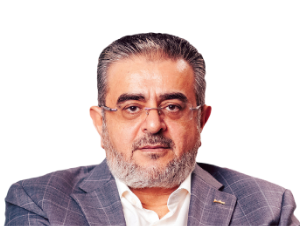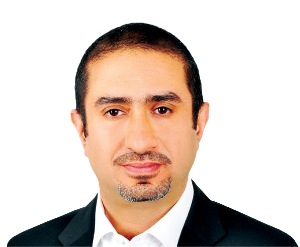RIYADH: As Saudi Arabia’s tourism sector continues to grow, with the Kingdom expecting to attract 100 million annual visitors and creating one million jobs by 2030, building a resilient hospitality industry has become a core focus.
The hospitality sector has risen up to the challenge by ensuring that there is enough qualified manpower to handle the ever-increasing demand by providing training programs for nationals to develop their skills across all career levels. The intention is to equip young Saudis with essential skills in the hospitality, tourism, and travel industries through programs supported by the world’s best tourism training schools.
Companies throughout the Kingdom are cultivating careers in hospitality through vocational training programs that emphasize resource efficiency and provide globally recognized qualifications.
In August, the Radisson Hotel Group launched a training program, A Brilliant Journey of Advanced Development Programme, aimed at developing Saudi talent. The program targets supervisors and equips them with the expertise to fill managerial positions across its portfolio of 26 operational hotels.
“All the programs that we have launched target Saudi employees. And that works well with Vision 2030 offering new jobs for Saudis,” Managing Director of RHG Saudi Arabia Basel Talal told Arab News.
Talal added that 14 Saudis, over half of them women, are in the program at supervisory and assistant managerial levels.

Basel Talal
According to him, the group remains committed to upskilling Saudi nationals working in the hospitality sector as part of its expansion strategy in the Kingdom.
Talal said that the initiative aligns with the Saudi 2030 Vision, which aims to increase tourism’s contribution to the domestic product to 10 percent.
Among the group’s initiatives is the Concierge Navigation to Success program, which aims to provide Saudis working in the hospitality industry with the tools and resources they need to advance their careers and ultimately enrich customer experiences.
Talal said that five males and two females are currently enrolled in the concierge program.
The NTS program was launched as a response to COVID-19, Talal said, adding, “As a result of the lack of visitors and business during COVID-19, the Ministry of Tourism advised all hotels to focus on concierge services.”
The programs will be offered twice a year, “The idea is that we repeat the program every six months, twice annually,” he informed.
To cover certain core elements or pillars, RHG partners with training programs like Atton or Maximus: “We’ve seen that there are parts or gaps in the training program that require us to reach out to third parties,” Talal said.
With those programs, RHG improves employee retention and creates more loyalty to the brand, and to the unit as a whole. “Higher retention or improved retention will only result in a better quality of service, and reduce cost because you don’t get any employees to train them, you just work with the existing employees,” he said.
RHG employs over 450 Saudi line employees and another 200 are supervisors and managers, he added.
RHG also has a follow-up process for graduates on their progress, their skill set, and how to improve, which is reflected in their annual performance reviews, Talal concluded.
Leading the way
The Red Sea Development Co. is also leading the way in establishing undergraduate and postgraduate hospitality programs.
TRSDC, in partnership with the University of Prince Mugrin and the École hôtelière de Lausanne, offers scholarships to high school graduates who are interested in studying international hospitality management, Fadi Alaseri, TRSDC’s associate educational director told Arab News.
“TRSDC’s transformative education programs are designed to develop the brightest minds in the tourism and hospitality fields, by equipping young Saudis with the needed skills and competencies, allowing them to realize their full potential,” Alaseri said.
There are two tracks available in the program: Fast Track, which is a four-year program with no preparatory year, and Full Track, which is a five-year program with a preparatory year, which qualifies students to begin the major.
TRSDC and its partners will provide suitable job opportunities to graduates upon successful completion of the program, he added.
“The program aims to prepare leaders and specialists in international hospitality management by providing a curriculum that combines theoretical knowledge and hands-on experiences based on Swiss and international hospitality standards,” Alaseri said
There were 2,653 applicants for the scholarship, 1,883 of whom were males and 770 were females. However, only 26 were selected, of which 14 were males and 12 were females.
“Our talents will run the ground-breaking luxury, regenerative tourism destination in alignment with the Saudi labor market needs within our destination,” Alaseri said.
“TRSDC reshapes educational opportunities by opening new doors and empowering young Saudi professionals with the required skills and knowledge to excel in the hospitality field and tourism sectors,” he added.
Upskilling Saudi youth
In order to provide students with job opportunities at Hilton Hotels in Saudi Arabia upon graduation, the group entered into a partnership with Bunyan Training Academy in July 2022.
The training program, which is accredited by the Saudi Technical and Vocational Training Corporation and certified by the EHL, is available to select young Saudi talent, Hilton Group’s Senior Director of Human Resources for Saudi Arabia, Egypt and Levant Fawaz Moumina told Arab News.

Fawaz Moumina
“This is the first time in Saudi that an international hospitality provider such as Hilton is collaborating with EHL to offer this program,” he added.
Students will receive sought-after theoretical and practical lessons across various functions of the industry, Moumina said.
Furthermore, participants will be able to pursue bachelor’s degrees based on the variety of professions they will be trained in, including culinary, F&B, front office, and housekeeping, if they choose to do so, he said.
This program aims to identify more than 30 Saudi talents who are interested in pursuing a career in hospitality. “Following a meticulous selection process, Bunyan Training Academy carefully selected applicants with Hilton’s input,” Fawaz said.
In 2024, students who complete the program will receive a diploma accredited by both the Saudi TVTC and EHL, he said.
As part of its efforts to mobilize the nation’s labor force, Moumina said the group has also established close ties with the King Khalid Foundation, the International Youth Federation, King Saud University and ministries and governmental organizations like the Saudi Tourism Authority.
Fawaz stated that Hilton has 2,400 team members in Saudi Arabia across 16 hotels, to reach 10,000 by 2030 — half of whom will be Saudi nationals.


























